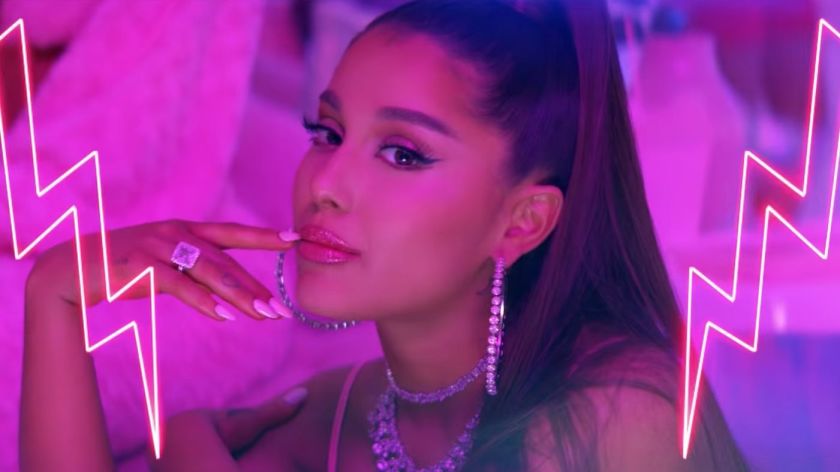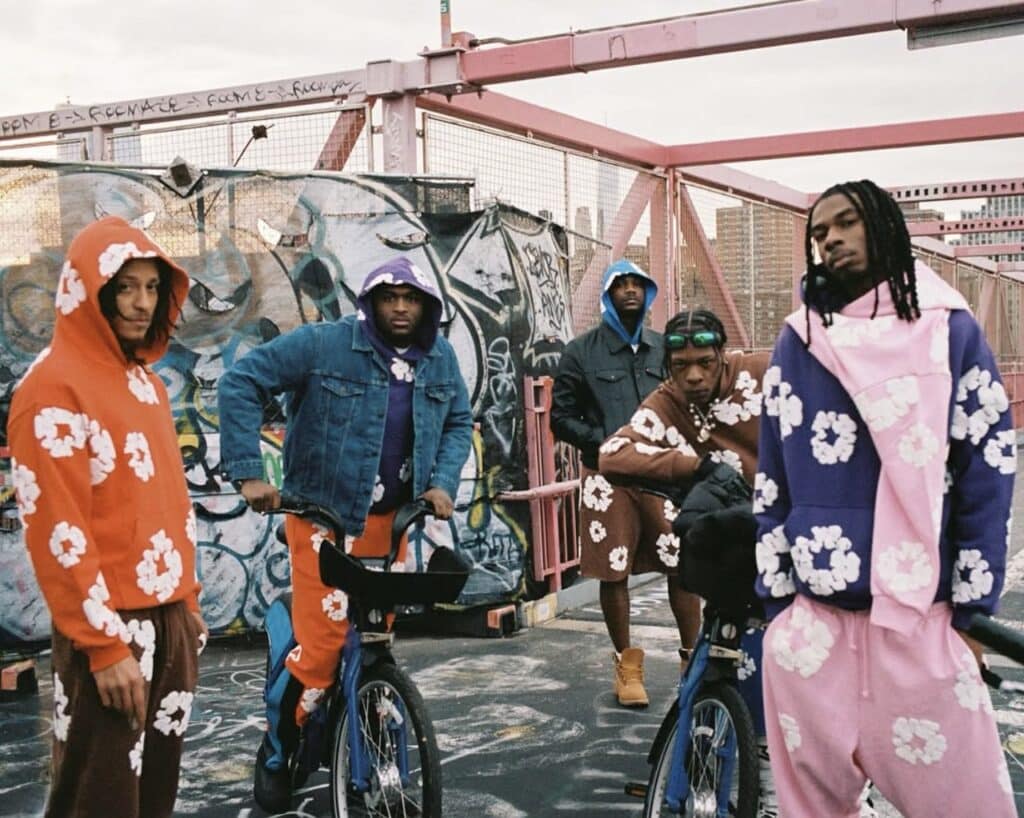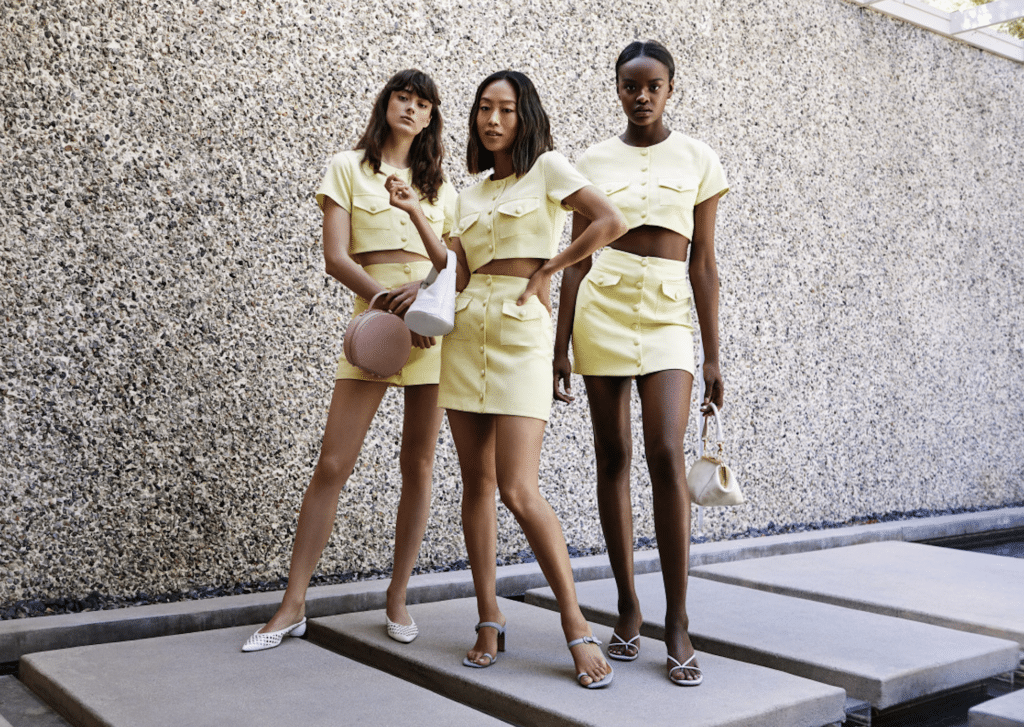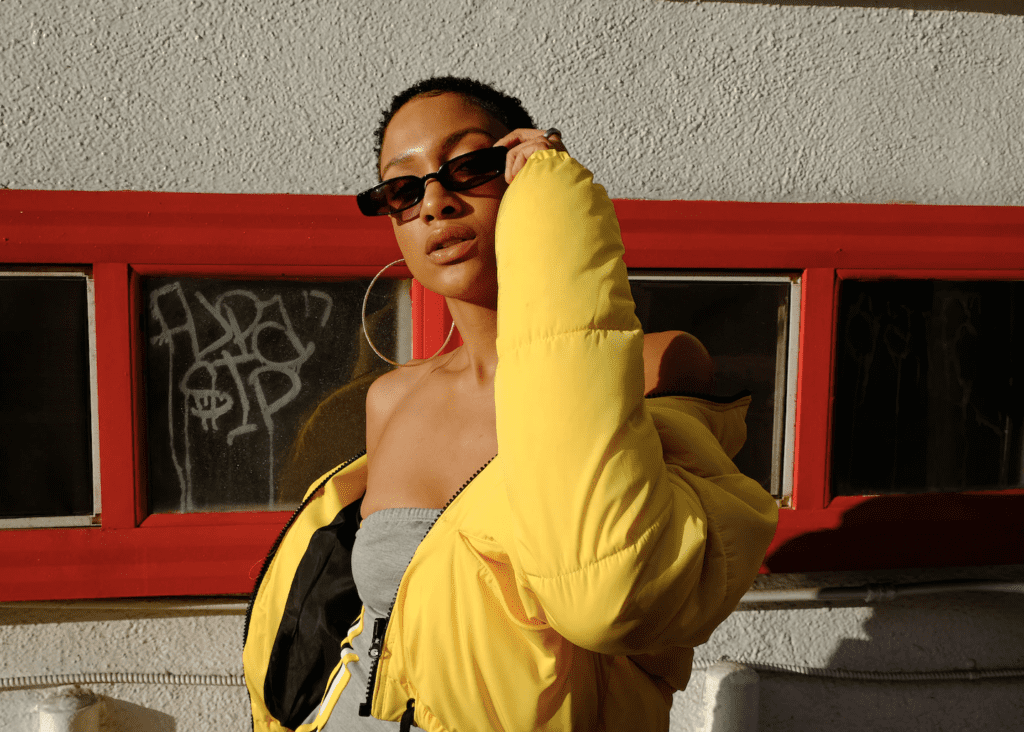Ariana Grande is suing Forever 21 for $10 million. According to the complaint filed by counsel for Grande in a federal court in California on Monday, after a potential deal between the pop star and the fast fashion brand – which is reportedly on-the-brink of bankruptcy – fell through because of Forever 21’s “unwillingness to pay the fair market value for a celebrity of Ms. Grande’s stature,” the ailing fast fashion retailer enacted a backup plan: it “stole her name, likeness, and other intellectual property to promote their brands for free.”
Grande’s counsel alleges in the 76-page complaint that in lieu of inking a deal with the Grammy winner, Forever 21 and its sister beauty brand Riley Rose – which was founded by Esther and Linda Chang, daughters of Forever 21 founder Do Wan Chang – created a marketing campaign that “capitalized on the concurrent success of Ms. Grande’s album Thank U, Next by publishing at least 30 unauthorized images and videos misappropriating Ms. Grande’s name, image, likeness, and music in order to create the false perception of her endorsement.”
Forever 21’s use of images of Grande in its Instagram posts is particularly egregious, the complaint asserts, as Grande is “highly sought after by companies hoping to secure her endorsement of their products, and those companies are willing pay enormous sums of money to engage [her] to help promote their brands.” As a result, “Even a single social media post by Ms. Grande can garner fees of several hundred thousand dollars, and her longer-term endorsement arrangements command fees in the millions of dollars.”
 image via complaint
image via complaint
More than merely co-opting images of Grande, though, Forever 21 also “falsely suggested Ms. Grande’s endorsement by [featuring] a look-alike model” in the campaign,which remained on social media for a total of 14 weeks despite Grande’s counsel’s objections, and by making use of “clothing and accessories that resemble clothing worn in Ms. Grande’s music videos and that the public immediately associates with Ms. Grande.”
The resemblance between Grande and the model chosen by Forever 21 for the campaign was “uncanny,” thanks to the fact that the model was “wearing a similar hairstyle to the one Ms. Grande wore in the 7 Rings video, dressed in a top designed to look like a top worn by Ms. Grande in numerous well-known photographs (including photographs of Ms. Grande that Forever 21 wrongfully posted on its Instagram feed), and using a pose that is virtually identical to the pose in which Ms. Grande [has been] photographed,” among other things.
(Note: It does not appear that Grande is claiming ownership over the hairstyle or the clothing at issue, which would certainly be a losing battle. Instead, her counsel seems to be pointing to these elements as indicators of Forever 21’s use of her likeness more generally).
Still yet, the brand went even further by “using audio and lyrics” from Grande’s recent hit single “7 Rings” and including “the distinctive ‘7’ from the 7 Rings video in the background” and in captions for its campaign. “Forever 21’s intent was clear,” Grande’s counsel claims: “to suggest to the viewing public that Ms. Grande endorsed Forever 21, its products, and was affiliated with Forever 21” even though she was not.
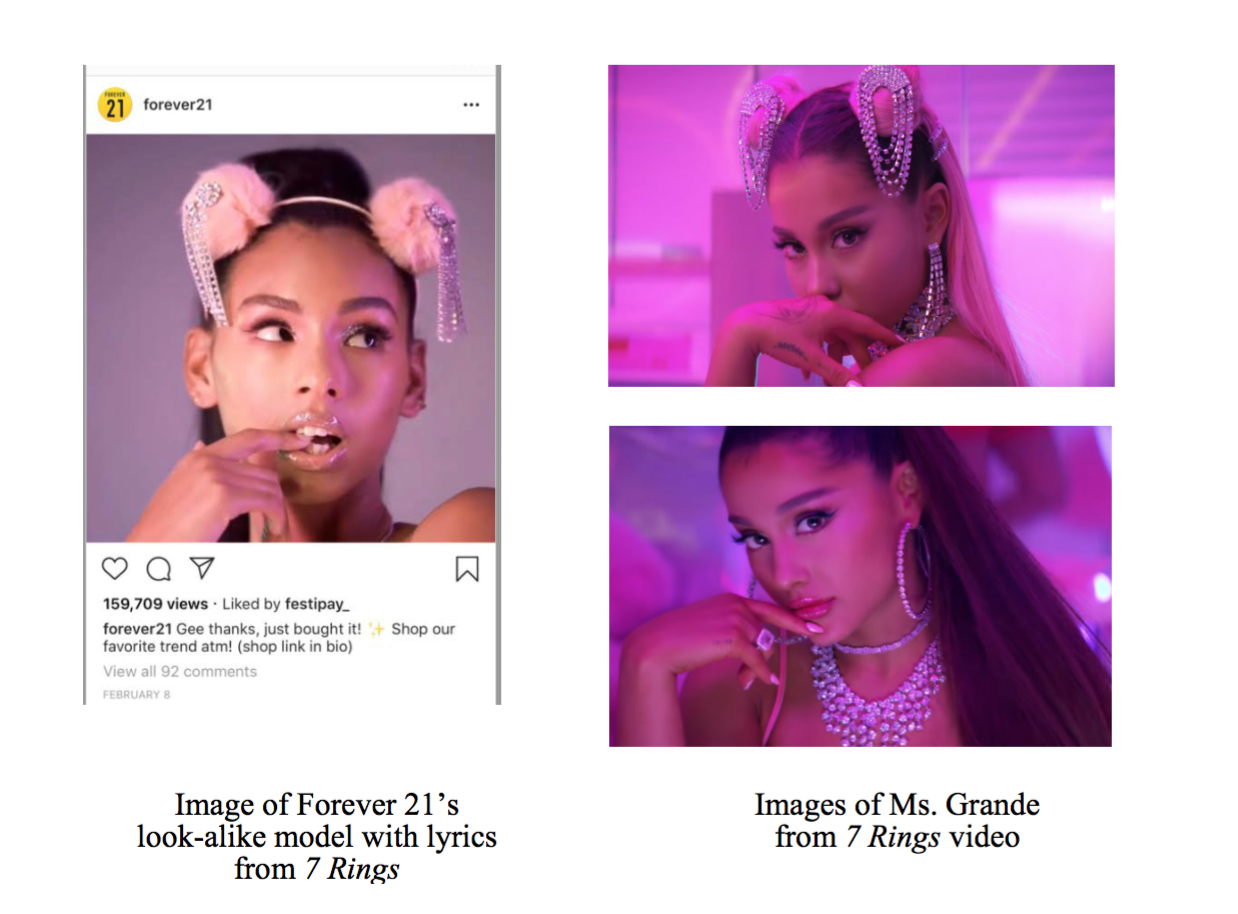 image via complaint
image via complaint
As a result of the foregoing, Grande’s complaint sets forth claims of trademark infringement (in connection with its use of her name) and copyright infringement (for its unauthorized use of her photos), and false endorsement. Her counsel also cites a claim of violation of her right of publicity, a state-specific legal doctrine developed to give individuals the ability to prevent others from commercially exploiting their names and/or likenesses without permission. In accordance with this doctrine, celebrities have grounds to take action when their names, images, likenesses, etc. are used for commercial purposes.
Grande is seeking “no less than $10 million” in damages.
The singer’s case is something of a throwback to the $20 million suit that reality television mega-star Kim Kardashian filed against Old Navy back in 2011 after the mass-market retailer ran a commercial featuring “lookalike” model Melissa Molinaro. Kardashian’s counsel asserted in the suit, which settled out of court ahead of trial, that because “Kim Kardashian is immediately recognizable, and is known for her look and style,” by using a lookalike model, Old Navy knew exactly what it was doing: appropriating her identity for its own commercial benefit.
*The case is Ariana Grande-Butera v. Forever 21, Inc., and Riley Rose LLC, 2:19-cv-07600 (C.D.Cal.)







